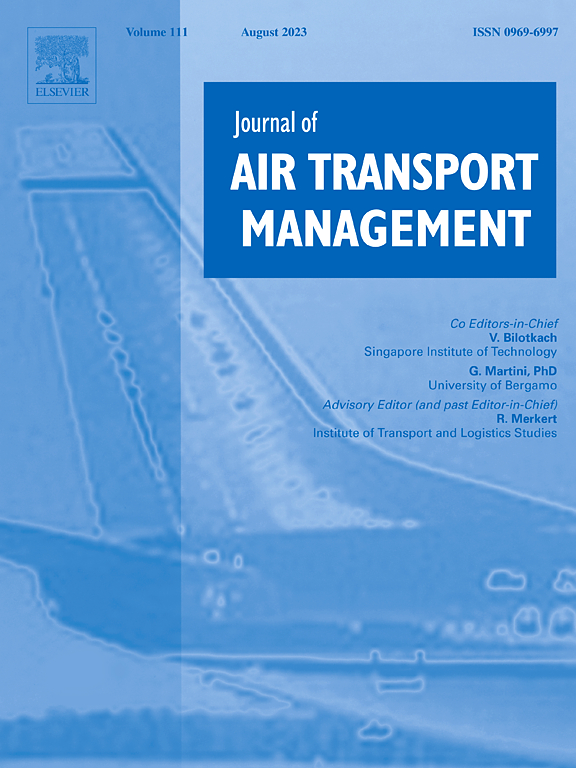A study on the strategic behavior of players participating in air-rail intermodal transportation based on evolutionary games
IF 3.6
2区 工程技术
Q2 TRANSPORTATION
引用次数: 0
Abstract
This study elaborated a tripartite evolutionary game model of civil aviation, high-speed rail (HSR), and passengers in an air-rail intermodal transport system (ARITS). It is used to find the optimal interaction between civil aviation, HSR, and passengers on non-direct journeys, as expressed in payoffs of the three players and decision-making behaviors in game. Payoff matrices of three game players were created considering travel time, fare, and mileage cost. The replicated dynamic equations were then derived to analyze the stability of the evolutionary model and the dynamic behavior of each game player under the initial status. Finally, a case of five transport corridors in China was conducted to assess the effects of such key factors as discounted fares, travel time, and mileage costs on the evolutionary trend and final strategy. The results strongly indicated that each game player would tend to choose the strategy with the highest payoff, in which civil aviation and HSR were ultimately inclined to a cooperative strategy while passengers eventually preferred to support the construction of ARITS. Besides, the variation of each game player's factors affected the trend of the tripartite evolutionary game. Still, only the discount on fares may change the final strategies of three game players, in which civil aviation would be more likely to change into a competitive strategy due to individual interests.
基于演化博弈的空铁联运参与者策略行为研究
本研究阐述了空铁联运系统(ARITS)中民航、高铁和乘客的三方进化博弈模型。该模型用于寻找民航、高铁和乘客在非直达旅程中的最佳互动,具体表现为三方博弈者的报酬和博弈中的决策行为。考虑到旅行时间、票价和里程成本,建立了三个博弈方的报酬矩阵。然后推导出复制动态方程,以分析演化模型的稳定性和每个博弈方在初始状态下的动态行为。最后,以中国五条交通走廊为例,评估了票价折扣、旅行时间和里程成本等关键因素对演化趋势和最终策略的影响。结果强烈表明,每个博弈方都倾向于选择回报率最高的策略,其中民航和高铁最终倾向于合作策略,而乘客最终倾向于支持 ARITS 的建设。此外,各博弈方因素的变化也影响了三方演化博弈的趋势。不过,只有票价折扣可能会改变三方博弈者的最终策略,其中民航更有可能因个人利益而转变为竞争策略。
本文章由计算机程序翻译,如有差异,请以英文原文为准。
求助全文
约1分钟内获得全文
求助全文
来源期刊

Journal of Air Transport Management
TRANSPORTATION-
CiteScore
12.40
自引率
11.70%
发文量
97
期刊介绍:
The Journal of Air Transport Management (JATM) sets out to address, through high quality research articles and authoritative commentary, the major economic, management and policy issues facing the air transport industry today. It offers practitioners and academics an international and dynamic forum for analysis and discussion of these issues, linking research and practice and stimulating interaction between the two. The refereed papers in the journal cover all the major sectors of the industry (airlines, airports, air traffic management) as well as related areas such as tourism management and logistics. Papers are blind reviewed, normally by two referees, chosen for their specialist knowledge. The journal provides independent, original and rigorous analysis in the areas of: • Policy, regulation and law • Strategy • Operations • Marketing • Economics and finance • Sustainability
 求助内容:
求助内容: 应助结果提醒方式:
应助结果提醒方式:


